Here is my code:
NSString *string = @"Ciyt";
const char *City = [CityString UTF8String];
CFStringRef value = CFSTR(&City);
show following error at third row in Xocde:
Invalid operands to binary expression ( 'char *' and 'char *' );
Any idea to resolve it?
